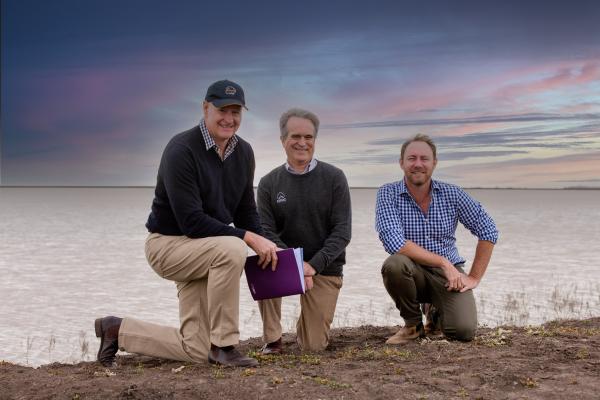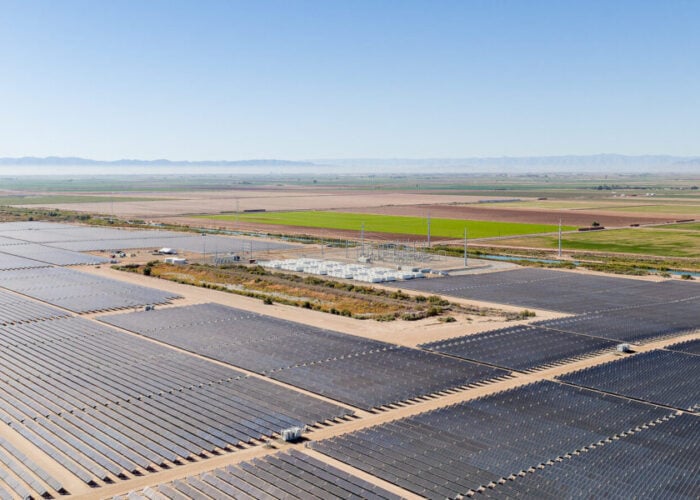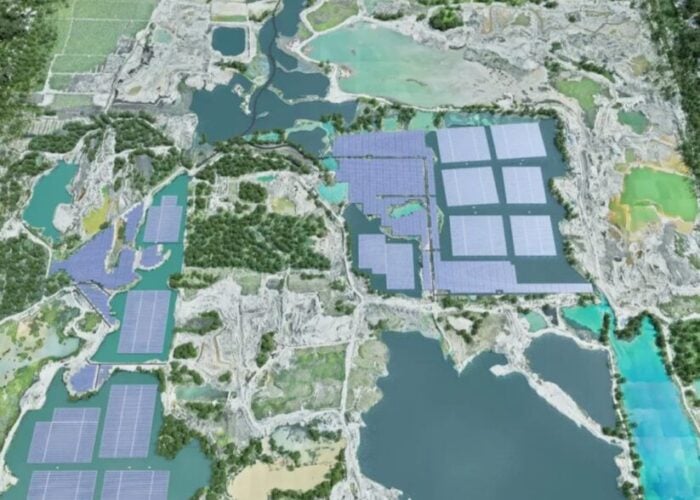
A five-year research initiative is underway in Australia to test the viability of floating solar PV systems on irrigation dams, addressing water conservation needs while generating renewable energy in the agricultural sector.
The AU$13 million (US$8.5 million) project, called ‘Novel Energy and Evaporative Storage Technologies for Irrigators’ (NEESTI), secured AU$6 million in funding under the Federal government’s AU$5 billion Future Drought Fund’s Resilient Landscapes programme.
Try Premium for just $1
- Full premium access for the first month at only $1
- Converts to an annual rate after 30 days unless cancelled
- Cancel anytime during the trial period
Premium Benefits
- Expert industry analysis and interviews
- Digital access to PV Tech Power journal
- Exclusive event discounts
Or get the full Premium subscription right away
Or continue reading this article for free
Led by economic consultancy AgEcon Australia with support from the Cotton Research and Development Corporation (CRDC), the floating solar initiative aims to address two challenges facing Australian agriculture: water security in an increasingly hot, dry climate and the need to reduce carbon emissions.
Benefits of floating solar implementation
Research conducted by the CRDC revealed that nearly 50% of on-farm water storage volume is lost annually to evaporation, highlighting the urgent need for solutions like floating solar systems.
The research suggests that relocating just half of Australia’s current 16.6GW ground-mounted solar capacity to water storages as floating solar installations could conserve 296 gigalitres of water yearly while generating renewable energy.
Floating solar technology offers additional benefits by freeing up valuable land for other critical infrastructure, such as buildings and farming, creating a dual-purpose solution for Australia’s agricultural sector.
Research goals and implementation strategy for floating solar
AgEcon principal climate analyst and economist, Jon Welsh, said the floating solar project aims to address Australia’s ‘critical trilemma’ of securing water, food and clean energy.
“We know floating solar projects can work, but there are serious challenges, and a critical research gap remains – and that is how to develop a practical and cost-effective solution ready for farm rollout,” Welsh said.
The research programme aims to deliver technical, economic, policy, and legal frameworks to establish a sustainable Australian floating solar PV market specifically designed for cotton growers and other irrigators, Welsh added.
Market opportunities and industry impact of floating solar
The floating solar research comes at a critical moment as agricultural supply chains face mounting pressure to reduce emissions to meet national and sector-specific targets. The CRDC describes the project as a “win-win” for Australian agriculture.
PV Tech Premium has previously discussed the role of floating solar PV in inland reservoirs in the most recent issue of our downstream journal, PV Tech Power. Specifically, the article examines how the energy yield performance of different system configurations could enable floating PV to fulfil its potential.
It is worth noting that Canopy Power Australia and Ocean Sun, a Norwegian company specialising in floating solar technology, inked a partnership earlier this year to accelerate the deployment of the new generation of floating solar solutions across Australia’s water bodies.
Southeast Asian expansion of floating solar technology
Southeast Asia has emerged as a prime location for deploying floating solar PV systems globally.
Early last year, research firm Rystad Energy predicted Southeast Asia would add around 300MW of new floating solar capacity in the first few months of 2024. SolarDuck and Tokyu Land quickly followed this by constructing the first floating solar project in Japanv.
In August 2024, Malaysian energy company Cypark Resources Berhad commissioned a 100MW hybrid project featuring 35MW of floating solar PV in Merchang, a coastal town in the northeastern state of Terengganu, Malaysia.
According to a report released last year, floating solar also emerged as one of the front-running technologies set to be deployed in Indonesia.
India and China have recently seen two large floating solar PV projects come online, one of which is at the gigawatt-scale. State-owned China Energy Investment Corporation (CHN Energy) completed a 1GW floating solar project, which it claims is the largest and first of its kind in the world
The open-sea floating solar power plant is situated about 8km off the coast of Dongying City, on the eastern coast of China, adjacent to the Bohai Sea.
Floating solar PV is being explored not only in Southeast Asia but also in Europe. Recent coverage from PV Tech last week revealed that German-based energy service provider Q Energy and independent power producer (IPP) Velto Renewables had inaugurated Europe’s largest floating solar PV power plant.
The power plant has a capacity of 74.3MWp and is located in the municipality of Perthes in the Haute-Marne region of France.






